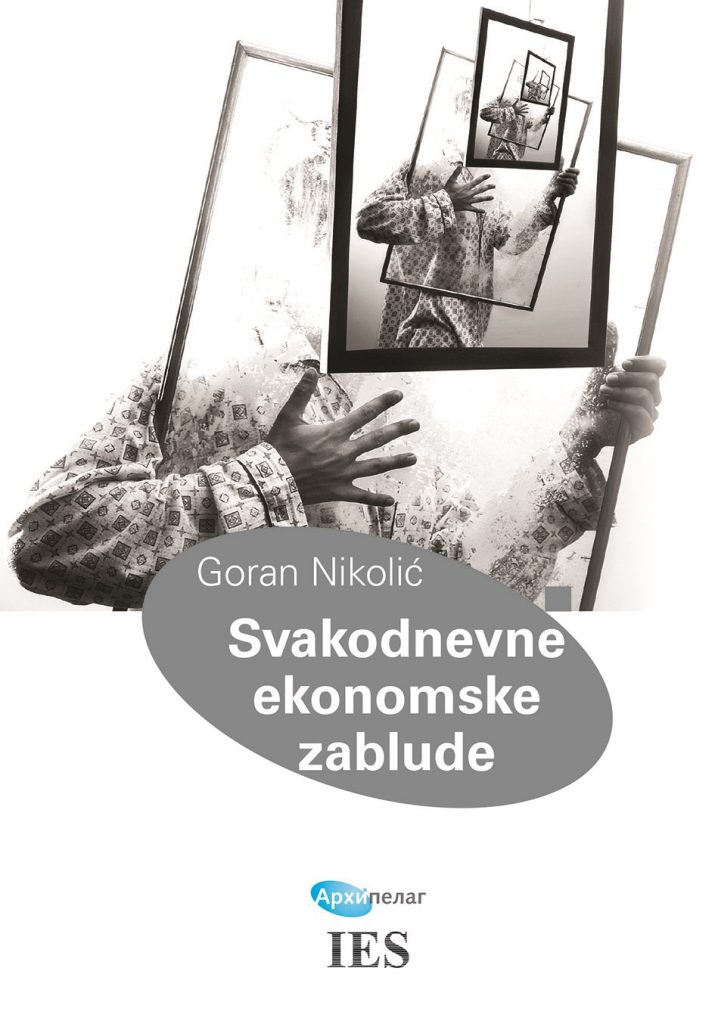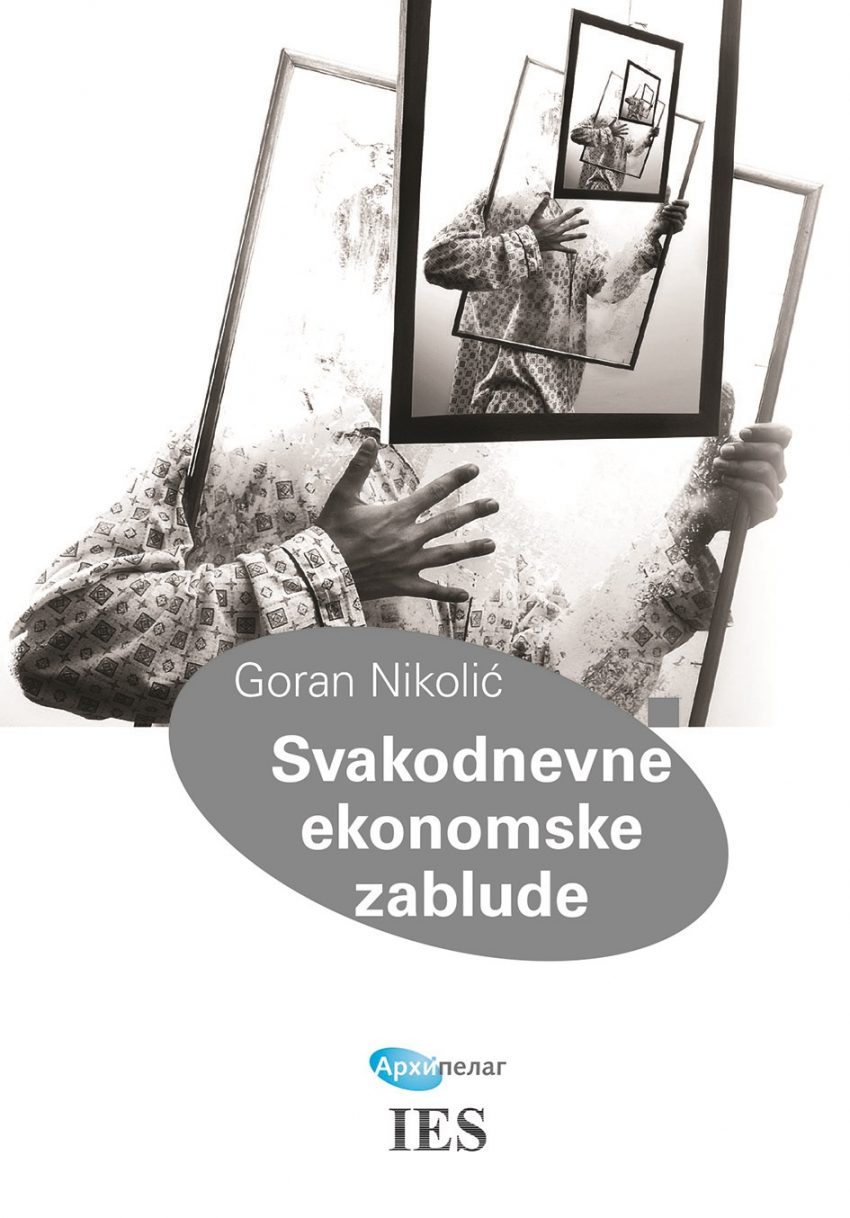From the Introduction:
When we go to school or state university we are in socialism, when we start working we are likely to find ourselves in capitalism. The roads we utilize to travel to work are a reminder of the socialist aspect of our society, as well as the hospitals to which, unfortunately, over time, especially in retirement, we have to go more and more often. The store where we buy supplies is part of the capitalist aspect in our society, while the norms and standards that prevent the sale of goods of dubious quality are largely due to the state’s efforts to impose rigorous regulations on companies in the interest of public health.
The society in which we live is basically capitalist, but with many norms of socialism, which became more and more present after the Second World War, and which will certainly continue to increase after the crises of 2008 and 2020.
It is worth recalling here that both capitalism and socialism are terms originally conceived for the same purpose: to create a decentralized system of distribution in which spontaneous needs and desires can be met. And as practice has shown, both approaches become destructive when they produce an excessive concentration of power (whether they are communist apparatchiks or oversized and omnipotent corporations, with strong lobbying influence on politics). With today’s technologies, a hybrid system can be imagined, which will take the best of both, to the satisfaction of a huge part of humanity, and in practice we already live in a kind of hybrid system.
It is indicative that the old socialist claim that centralized (social) planning would enable more efficient allocation of resources was justifiably rejected for decades, at least due to empirical unfoundedness. However, socialist planners have been claiming since the 1920s that future advances in computing will close the knowledge gap by correcting human imperfections as decision-makers and relativizing the importance of the so-called. the invisible hands of the market as an allocator of resources. Today, we are finally in a time when computers can process far more information than can be through the rational interactions of market participants. Namely, the algorithms of artificial intelligence quickly crossed the path from winning world chess champions to writing poetry. The question is logical: why could they not be able to improve the functioning of the market? The answer seems clear, but those who are interested in the status quo – the world’s plutocracy and political elites – will do everything to do very little to promote this way of looking at things.
Basic social relations are economically conditioned (which are again predominantly caused by the distribution of power), but the economy is not everything and it actually shapes our everyday life less than it seems to many. Reality is undoubtedly deeply intertwined with economics, but to reduce social relations to their economic aspect is deeply wrong. In that sense, the two ideologies (defined by the famous Israeli historian Yuval Harari, the writer of the planetary bestseller Sapiens, in the broadest possible sense), which besides capitalism (with the mentioned elements of socialism) determine the everyday life of the vast majority of us are nationalism and religion. Thus, the life of every individual on the entire planet is basically determined by the social system in which almost all of us operate (with companies that are its main bearers, which are strongly legally protected and practically economically subsidized through imposed rules of monetary, fiscal and regulatory policy), country in which we live, and to a lesser extent the deity we worship (with all the social norms that religions imply).
The above wording is probably not so close to most of you and may even be counterintuitive to you. The reason is very simple. Namely, we have been taught to accept the mentioned “ideologies” as natural or God-given. For example. we have learned about the so-called the natural laws of the market or the invisible hand of the market. Nation and religion are so unquestionable that the otherwise well-known thesis on social constructs (which interestingly emphasizes the nation but not capitalism as such) seems to be something abstract, distant or wrong. However, the world in which we function is basically based on constructs, i.e. imaginary communities or gods, and especially faith in money, so that without these useful misconceptions our otherwise high level of social cohesion and more or less undisturbed life of most eight billion homo sapiens -and was completely distracted. Those at the top of the pyramid (or ‘food chain’) are making great efforts for us to understand the value system in which we operate on a daily basis as unalterable. Market forces are presented as natural, rulers as bearers of the inviolable will of the people, religious fathers as morally infallible, the legislative system as the only possible and of course fair. Doubts about the system are practically impossible because people are in fact directed by the mentioned ideologies. However, it should be added that people without faith in common values, which they invented during their cognitive and cultural evolution to create a sense of connection (namely, a community of more than 150 individuals is virtually impossible to manage without at least religious justification), would be in permanent interpersonal conflicts. This could very easily lead to unforeseeable consequences that would either lead to the extinction of the species or to its marginalization in the wider animal world, similar to our closest relatives – chimpanzees.
The very first part of this book (“After Capitalism”) is dedicated to exposing these useful lies that maintain our social fabric. In the first text, our main topic is how to reform capitalism, that is, to weave more social democracy into it. Then we try to figure out why nationalism is the most powerful ideology of today, but also why its often populist character, nationalism, neglects the topic of unjust economic redistribution. We end the chapter with hope for a better man, that is, a review of the opinions of authors who believe that man is inherently generous and generous rather than selfish and selfish.
In the second part of the monograph, we will look at the eternal Serbian doubts: Why are the untruths in the EU dangerous for Serbia; how aggressive Serbs really are; whether our country is really rich in natural resources; how much the economy affects the election results; what is the income inequality among Serbs. Related to the previous, and having in mind the gloomy demographics, we are trying to give an answer on how to prepare for life in the coming society of the elderly and project the average income and salaries in our country in 2040.
The third part of the monograph (“Big debatable issues”) problematizes an old dilemma: Is it profitable to be good, and a relatively new one: do investments in road infrastructure really raise economic growth? After the text: “The Illusion of Economic Propulsiveness of the Service Sector”, we end the book with the topic: Will our children really pay the debts of the current generation. After this chapter, an overview of the sources used literature is given. A significant part of the texts is a factual consequence of the author’s engagement in the project within the Institute for European Studies.


